Cooking With The Right Fats
Are you confused about which fats are good and bad? I do not blame you – there’s a lot of conflicting information about fats out there. Some myths just won’t die. The biggest one is
best-fats-cook-with that eating fat leads to weight gain. While recent studies show that’s not true, we still see books and articles advocating for low-fat diets for faster weight loss.
Fats play a major role in weight loss and overall health. They help absorb other nutrients you consume, balance hormone levels, maintain cell structure and much more. However not every type of fat. Eating bad fats (trans fats, and hydrogenated oils) can lead to heart disease, high cholesterol, weight gain, depression and other diseases.
Not only should you know which fats are healthy and which are not, but you should also know which fats are safe to cook with. Some fats are better consumed in their room temperature state as they react with the heat and become unhealthy fats.
WHAT ARE THE BEST FATS FOR COOKING ?
When you’re cooking with high heats, you would want to use oils that do not oxidize or go rancid easily, as these can cause harmful free radicals that are damaging to the body The most important factor in determining an oil’s resistance to oxidation and rancidification, both at high and low heat, is the relative degree of saturation of the fatty acids in it.
Polyunsaturated and monounsaturated fats are best consumed in salad-dressings or at room temperature. These fats include olive oils, sustainably sourced palm oil, fish oils, flaxseed oil, and nut oils. Industrial seed and vegetable oils are highly processed, refined products that are way too rich in Omega-6 fatty acids. Not only should you not cook with them, you should probably avoid them altogether. These oils have been wrongly considered “heart-healthy” by the media and many nutrition professionals in the past few decades. However, new data links these oils with many serious diseases, including heart disease, elevated blood pressure and blood triglycerides and cancer.
Try your best to avoid:
- Soybean Oil
- Corn Oil
- Cottonseed Oil
- Canola Oil
- Grapeseed Oil
- Sunflower Oil
- Sesame Oil
- Safflower Oil
- Rice Bran Oil
The best sources of saturated fat are coconut oil, grass-fed butter, ghee, and grass-fed animal fats such as lard. These fats react well with high heats and will not easily oxidize.
GHEE BUTTER
Ghee butter especially has many unknown benefits that makes it even better for cooking. What is Ghee exactly? Ghee is made the same as clarified butter, but heated longer. However, it is not likely to affect people with a dairy or casein intolerance. Ghee is made from butter but the milk solids and impurities have been removed, so most people who are lactose or casein intolerant have no issue with ghee. In addition, Ghee is rich in medium chain fatty acids, which are absorbed directly by the liver (like carbs) and burned as energy. Athletes can use ghee as a consistent energy source. Ghee also is a rich source of vitamin E, which is an antioxidant whose role is to repair damaged skin, balance hormones, improve vision and help to balance cholesterol.
Tips for Storing Ghee Butter:
Always store your ghee in a container with a good seal in the dark.
Ghee will last 2-3 months if you keep it in an airtight container.
When kept in a refrigerator, without opening, ghee can last up to a year
COCONUT OIL
Coconut oil has lately been labeled one of the healthiest foods on the planet. Priorly, coconut oil was feared due to its high saturated fat content, however, research has now shown that coconut oil contains fatty acids with powerful medicinal properties. Just like Ghee butter, it is also directly absorbed by the liver and used as a source of energy instead of being stored as fat. It has also shown to have benefits for:
- Cognitive health
- Prevention of heart disease
- Reducing inflammation and arthritis
- Boosting the immune system
- Improving digestion
- Lowering blood sugar
- Balancing hormones
- Fighting bacterial infections
The medium chain triglycerides in coconut oil have been shown to increase calories burned over 24 hours by as much as 5%, potentially leading to significant weight loss over the long term, who wouldn’t want that?! The beauty of cooking with coconut oil is that it does not negatively react with high heat and maintains its medicinal properties, making it an ideal source of fat for cooking. It is important to remember however, that not all coconut oils are created equal. Many brands are overheated and bleached to prolong shelf life, but also ridding them of their health benefits. Your best bet would be to buy organic, extra virgin coconut oil.
A Few Things To Keep in Mind
To make sure that your fats and oils don’t go rancid, it is important to keep a few things in mind. Don’t buy large batches at a time. Buy smaller ones, that way you will most likely use them before they get the chance to damage. Keep them in a cool, dry, dark place and make sure to screw the lid on as soon as you’re done using them to avoid exposure to heat, oxygen and light, which are the driving factors of rancid.
This is what you need to do now. Click here and sign up for our free report called “The 10 Keys to Increase Energy and Weight Loss.” If you are ready to take action and seek the help of a chiropractor, give us a call and make your new patient appointment. I look forward to seeing you and creating immense value for you. To read up on more health and wellness tips follow our blog here. If you enjoyed our blog like and share below!
Health First Chiropractic is conveniently located in Glen Allen, in the Far West-end, near Innsbrook, Wyndham, Twin Hickory, and Short Pump. We look forward to helping you with your chiropractic, health, and wellness needs. Give us a call today: 804-270-6010


